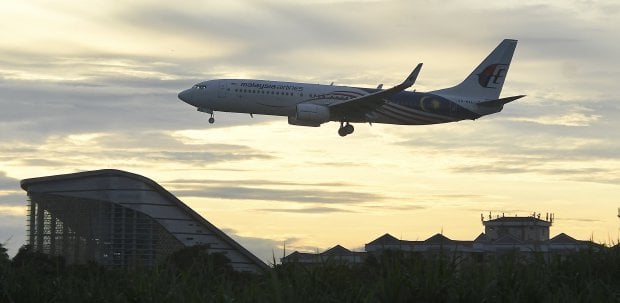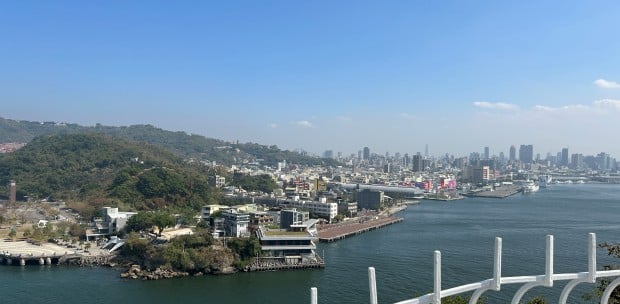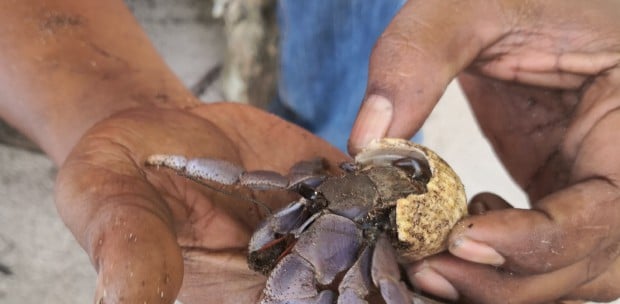
NORTHERN Thailand is where the first Thai kingdoms of Chiang Saen, Chiang Mai and Sukhothai evolved and while this history still fascinates some tourists, the city of Chiang Mai has become one of Asia's hottest travel destinations for its chic boutique hotels, intricate handicrafts, appealing outdoors activities and creative cuisine.
Its mountainous location ensures the climate is a few degrees cooler than the central plains of Thailand and Chiang Mai is considered Thailand's most livable city, where life moves at a slower pace than in Bangkok.
TRADITION TO DESIGN

A lot has changed in Chiang Mai over the past few decades, from being a rite of passage for 1970s backpackers to becoming a destination that appeals to a range of travellers, including the design-conscious.
Backpackers came to walk the northern mountains to learn about the cultures of the unique hill tribe communities living here, and Chiang Mai's night market became the place to buy authentic textiles and handicrafts.
While backpackers still travel here, tourism is changing, and international hotels and direct flights have opened the way for mainstream tourism.
I have been to Chiang Mai many times over the past few decades and have observed its transformation.
To some extent, it has become less adventurous, with fewer travellers seeking encounters lasting several days among remote hill tribe communities.
Perhaps Thailand has become too mainstream, with the truly daring venturing to remote global destinations and communities.
However, reasonably adventurous activities are still possible, including elephant rides, zip-lining through the rainforest canopy, cycling and rafting.
GETTING A LIFE

While many visit Chiang Mai for its attractions, such as its cultural sites, including the Buddhist temples (wats) that dot the landscape, others visit for what is now referred to as "lifestyle".
This concept and its recent prominence in everyday conversations fascinate me because of its ambiguity and the implication that it is a recent concept — something not experienced by previous generations. It would appear that past generations didn't have a lifestyle, perhaps they just had a life.
Hotels were once a means to an end (a place to rest between visiting tourist sites and attractions). Now, many are considered destinations in themselves — places to visit and never leave while enjoying a lifestyle that includes indulgent spa treatments, enjoying creative cocktails at the atmospheric rooftop bar, brewed coffees and dinners paired with wines sourced from global boutique biodynamic wineries.
In line with this trend, cafes have blossomed in Chiang Mai and sometimes I wonder if they sell coffee or rent out chairs for patrons to use their smartphones.
Entrepreneurial coffee roasters and traders use locally sourced beans to entice consumers to concepts as diverse as the "original" coffee seller operating from his mobile outlet on the back of a motorcycle, one set up on an old trishaw, or another brewing beans from the back of a Volkswagen Kombi.
While none of these offer the all-important WiFi, most other, more formal coffeeshops do. Local Thai coffee concepts like Doi Tung, Wawee and Doi Chaang are much more interesting than the well-known international brands.
NORTHERN DELIGHTS

Food provides one of the great joys of any visit to Thailand and the experience in the north is rewarding as there are many delicacies that are accessible, cheap, uniquely Thai, and, most importantly for disciples of the smartphone, Instagrammable.
Local Chiang Mai dishes to enjoy in iconic restaurants such as Huen Phen include naem sausages and khao soi noodles.
Fresh fruit such as lychee, durian longan, pomelo, strawberries and passionfruit thrive in the north, and are sold fresh in the markets and appear on many menus. Galare Food Centre within the night market has various stalls serving mostly Thai, Chinese (including specialties from nearby Yunnan) and Indian vegetarian treats.
There is an area nearby that serves halal food along what is known as Halal Street.
STYLISH SHOPPING

Shopping is another reason why travellers spend hours flying to Chiang Mai. Situated at a crossroads, it offers the stylish best from northern Thailand, Lao PDR, Myanmar and Yunnan, and, therefore, is a great market town for shoppers.
Chiang Mai is recognised as a United Nations Educational, Scientific and Cultural Organisation's City of Creativity for Craft and Folk Art.
Its night market along Chang Khan Road is the place to buy silver jewellery, homeware, lacquerware, celadon ceramics, fabrics and Thai souvenirs.
This market was once the place to obtain ornate hill tribe textiles and local handicrafts, but mass-produced souvenirs dominate these days, with authentic antiques and hill tribe handicrafts only available in a handful of antique shops.
The road to Sankumpaeng was once lined with small artisans producing their handicrafts, but large factory outlets catering to tourists, especially bus groups, are more common nowadays.
There are two main "walking street markets" in Chiang Mai (similar to a pasar malam) offering a more creative selection of goods than the night market.
Every Saturday night, the market extends along Wualai Road, and on Sundays, a bigger market is set up along Rachadamnoen Road.
RESTFUL RETREAT

Both banks of the Mae Ping River are the preferred addresses for many of the city's smart hotels, including the Anantara Chiang Mai, located just a short walk from the famed night market.
This boutique property incorporates the former home of the British consulate, which now accommodates The Service 1921 Restaurant and Bar, with intriguing twists going back to the early days when it served the British Intelligence Service. Each guest room here is spacious with contemporary interiors and excellent facilities.
All have river views, with those staying in the suites enjoying benefits like evening cocktails and a complimentary mini-bar. Guests can relax in the resort spa or in an elongated black-tiled pool beside the Ping River.
Order tasty authentic Thailand cuisine at discounted prices with foodpanda Discount Code.




